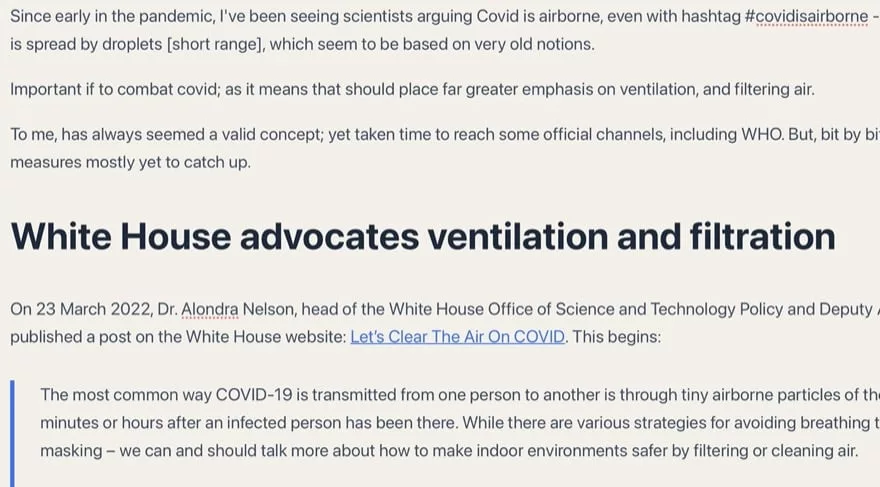Check the British Medical Journal at regular times of year, and you’ll find sober topics like influenza A, stress and cancer, and treatment of smokers. But the Christmas edition features “non-traditional” research. Last year, it included an investigation of why Rudolph’s nose is red – which found that a reindeer nose has a 25 percent higher density of blood vessels than a human nose, helping protect it from freezing during sleigh rides.
This year’s issue features a review of information on the pros and cons of laughter, peppered with corny one-liners. To wit: as children undergoing minor surgery did not clearly benefit from hospital clowns, authors R.E. Ferner and J. K. Aronson suggested, “Perhaps surgical patients derive no advantage from being in stitches” (yes, the duo should not give up their day jobs just yet).
Benefits of laughing included lower risk of myocardial infarction – aka heart attacks; and higher energy expenditure, though it seems you would have to laugh long and hard to achieve significant weight loss. Laughing may even help make women conceive better, given the results of a clown entertaining would-be mothers after in vitro fertilization and embryo transfer.
And yet, laughter is not always the best medicine. Humour can weaken your resolve, and promote brand preference, so doctors encountering drug salespeople are advised to respond, “Don’t make me laugh.” Some people laugh till they faint, and the report tells of a woman who died laughing, as well as noting cardiac rupture is possible – so there really are cases of laughing fit to burst. Less drastically, people have suffered sudden loss of muscle tone, though at least a woman who was only affected on the right side of her body could presumably still laugh on the other side of her face.
A ground-breaking paper looks at that pressing medical mystery: how long do chocolates survive on hospital wards? Careful observations revealed that boxes of chocolate left in wards were opened within an average of 12 minutes, and individual chocolates survived for an average of 51 minutes. Most were eaten by healthcare assistants and nurses, followed by doctors.
For a fact to titillate and amaze your friends during Xmas gatherings, Dutch researchers compared stem cells in a mouse and a humpback whale. Although the whale is around two million times as heavy as the mouse, they found the stem cells are similar in size.
Appropriately for Christmas, the journal has a survey finding that almost 1 in 200 US moms are virgins. Or at least they claim to be, though given a fair proportion have signed chastity pledges or have parents saying they barely communicate about sex and birth control, it appears likeliest they are just plain wrong. Lead author Amy Herring, a professor of biostatics at the University of North Carolina at Chapel Hill, US, told AFP: “We actually found a few virgin fathers as well — which is a little harder to get your head around.”
Another paper originated with a popular proverb, and came up with some useful health advice. “An apple a day keeps the doctor away,” is concise, accurate Victorian health promotion that has stood the test of time. In modelling the effect of eating an apple a day on vascular mortality – which you and I might call heart attacks and strokes, researchers found it could reduce the annual number of deaths in the UK by 8,500. This improvement was close to that predicted for daily statin use, but without potential side-effects like muscle disease and diabetes.
Also as Christmas was coming, the British Dietetic Association released its list of the Top 5 Worst Celebrity Diets to Avoid in 2014. Top of the list is a diet from a cult that Michelle Pfeiffer reportedly belonged to. Scientifically, there can be no doubt that it will lead to weight loss, for this is the Breatharian Diet: in which you supposedly derive sustenance from air and/or sunlight alone. As the association notes, weight loss will be accompanied by dehydration, malnutrition and risk of death.
Other diets to avoid include the fancy sounding Biotyping, quickly dismissed with a verdict of “Bio-nonsense!” A gluten-free diet for all, and minimising calories during the week before binge-drinking at the weekend are also scientifically unsound, even dangerous.
Earlier in the year, real science with a quirky twist was celebrated in this year’s Ignobel Awards – “For achievements that first make people LAUGH then make them THINK”.
The grand prize for medicine went to … drum roll please … a team of Chinese and Japanese researchers, “For assessing the effect of listening to opera, on heart transplant patients who are mice.”
The Physics Prize didn’t bother with brain boggling quantum particles or anything similar. Instead, it was awarded, “For discovering that some people would be physically capable of running across the surface of a pond — if those people and that pond were on the moon.”
Now, attempting to run across a pond seems like the kind of thing a very drunk person might attempt. And the prizes did include an alcohol related one, for research into the well-known “beer goggles” effect. Titled, “‘Beauty Is in the Eye of the Beer Holder’: People Who Think They Are Drunk Also Think They Are Attractive,” the study scooped the Ignobel in Psychology. One of the authors, Brad Bushman of Ohio State University, US, told the BBC that this the first study to find that drinking makes people think they are more attractive themselves, adding, “It illustrates that in human memory, the link between alcohol and attractiveness is pretty strong.”
And if this seemed obvious to you already, you might like to ponder on the Probability Prize, which was awarded to a five-person team for making two related discoveries: “First, that the longer a cow has been lying down, the more likely that cow will soon stand up; and Second, that once a cow stands up, you cannot easily predict how soon that cow will lie down again.”
Written for South China Morning Post; appeared on 22 Dec 2013.
Early warnings of climate change
While climate change resulting from human activities might seem a new-fangled concept, there have been on-point predictions dating back many years.…
Ignoring Science Makes Global Climate Disaster as Inevitable as Titanic Submarine Implosion
Climate change has been prominent in worldwide news this summer (2023), notably as we have just lived through the hottest week…
Have you been bullied into health? Fear, quackery and Covid
So here we are with our modern-day wonder, the internet – where even with a smartphone, you can search for and…
Never mind the antimask-o-sphere. Science shows face masks help reduce Covid spread
Just had one of those silly Twitter “conversations” with someone who had position so fixed, impossible to change with facts. Yeah,…
A Covid scrapbook: snapshots from the crazy pandemic
I’ve read accounts of the Spanish Flu, which was the last major pandemic, mainly in 1918 [so over and done with…
Highly pathogenic bird flu variants mostly evolve in intensive poultry farming
Highly pathogenic bird flu variants evolve from regular, low pathogenic, bird flus, within intensive poultry farming.
Keep Your Underpants Duck Taped and Air Clean as Covid Wild Ride Continues
We’ve learned a lot about Covid, even developing vaccines. Yet Covid remains an issue, no matter how much we might wish…
Covid is airborne so ventilation and air filtration are important
Since early in the pandemic, I’ve been seeing scientists arguing Covid is airborne, even with hashtag #covidisairborne – including to counter…
Long Covid – info and links indicating major impact
Evidence is snowballing that Long Covid is also a serious issue, even affecting people in whom the disease initially appeared mild.
Perhaps Covid arose through lab leak of tweaked bat Coronavirus
Maybe humans tweaked bat coronaviruses in gain of function experiments, inadvertently creating Covid thro lab leak.
The Covid Conundrum: Endless Lockdowns, Let It Rip … or What?
Covid is airborne, which means that much as unprotected sex is a risk for HIV, unprotected breathing might result in Covid.
Science shows Covid including Omicron is Really Not the Flu
Some of the science showing Covid including Omicron is a huge issue; and one that looks set to be with us…
“Alarmist” Covid predictions outperform Covid deniers’ soothsaying
The disinfo downplaying Covid is often from rightwing, mainly money-minded folks who perhaps don’t care too much about actual people.
Covid virulence, vaccines and variants
Science can provide some insights into what may happen with Covid, along with ways to limit its impacts.
We’re in the Covid Era for the Long Haul
We’re in this for the long haul, with the virus like a relentless, invisible foe, ready to exploit errors, slip through…
My Strange n Surprising Summer Staycation with Cellulitis
rom quick pricking by unseen marine creature, to intense fever, and hospital stay for an infection deep within the skin.
Covid virulence, vaccines and variants
[Written for South China Morning Post on 6 January 2021] In January last year, as reports were emerging of the new…
The Viral Time Bomb – Pandemic of Our Time
Guan Yi, director of the State Key Laboratory of Emerging Infectious Diseases at Hong Kong University, has extensive experience of viruses;…
From China With Fear: the Wuhan Coronavirus Won’t Kill Us All
As news of Wuhan coronavirus emerges, evolutionary biology suggests potential for a pandemic, not killing high percentage of people.
Fightback Needed as Science and Life Support System Under Attack
Environmentalism is under assault; yet this planet is the only home we have; providing our food, air, water… It’s our life…
Secret World of Hong Kong Water Supply
Hong Kong’s water supply system has been vital to its development as a “world city”.
Hong Kong Belching Buffaloes n Bubbling Paddies and the Mystery Methane Rise
Prof Euan Nisbet leads a science team to Hong Kong in quest to help find why levels of potent greenhouse gas…




















